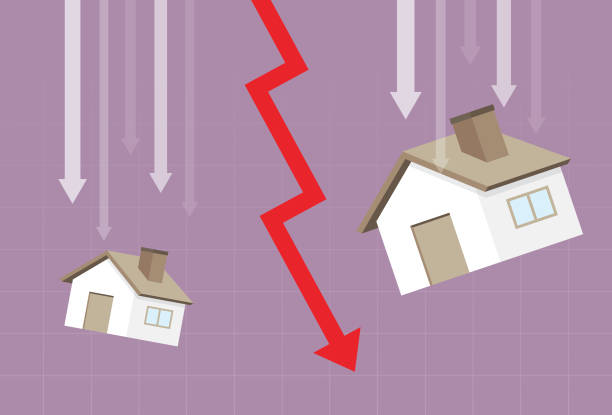Is it all doom and gloom for the property market?
- Published: 28th Nov 22
- Category: News
It never ceases to amaze me how the property market can fluctuate within such a short space of time. Everything seemed to be trundling along quite nicely earlier this year. Sure, the cost of living crisis was floating in the background but you had the sense that this had the potential to be controlled. Within hours of Kwasi Kwarteng sitting down triumphantly after delivering the mini budget, the financial markets went nuts.
The reaction was, well, less than positive. Mortgage lenders hurried to assess the impact and pulled many of their current deals recognising that the Bank of England would begin to rapidly increase interest rates. Almost overnight it seemed, mortgage rates doubled on fixed products.
Following the change of Prime Minister the markets have calmed and the subsequent Autumn statement reversed many of the previous policies and by and large this has been met with a more favourable response.
The Housing Market
The Bank of England faced with the rapid rise of inflation are continuing to increase their base rate. Currently the base rate is at it’s highest since November 2008. In these situations lenders will consider the long term and build in future rate rises into their lending figures. This is why you may see rates of 6 or 7% whilst the BoE rate is at 3%.
For many this means an increase in their monthly mortgage payments. Those people currently on low fixed rates face significant increases when they come to re-mortgage.
House prices have continued to climb throughout this year standing at an average of 7.2% higher than this time last year. However, there are now signs that the market is beginning to stall.
A reduction in buyers, higher mortgage rates and stricter lending criteria are all beginning to impact the market. This time of year is traditionally quieter so it is important to also keep this in mind. There is normally a natural increase in activity in the New Year.
There are also early indications that mortgage rates are beginning to drop and several lenders have revised rates on their fixed rate products. Some experts predict this is a trend that will continue into next year unless of course we see further significant BoE rate rises.
The Private Rented Sector
A downturn in the sales market is likely to affect the lettings market. Generally the two markets tend to be polar opposites. Historically when the sales market has dropped, lettings flourishes and there are plenty of signs that this will be the case again.
Overall there is, and has for some time been a lack of stock. This can be traced back to the Thatcher government policy of selling off local authority owned homes and shifting the responsibility to the private rented sector.
In recent years increased regulation and taxation has driven landlords from the market and there is no mechanism to replace these homes. Development of new homes has not kept pace with population growth and as a result we have the perfect storm.
Where demand outstrips supply in any market, prices increase. We only need to look at our food shopping receipts to see this.
Whilst lending costs are higher, with availability of properties for sale increasing and house prices reducing, those landlords prepared to take a long term view may find this is the moment to expand their portfolios.
Please note the date this article was published as the law or the essence may have changed since it was posted. You should always seek independent legal advice if you are intending to rely on any of the contents.
All resources & news